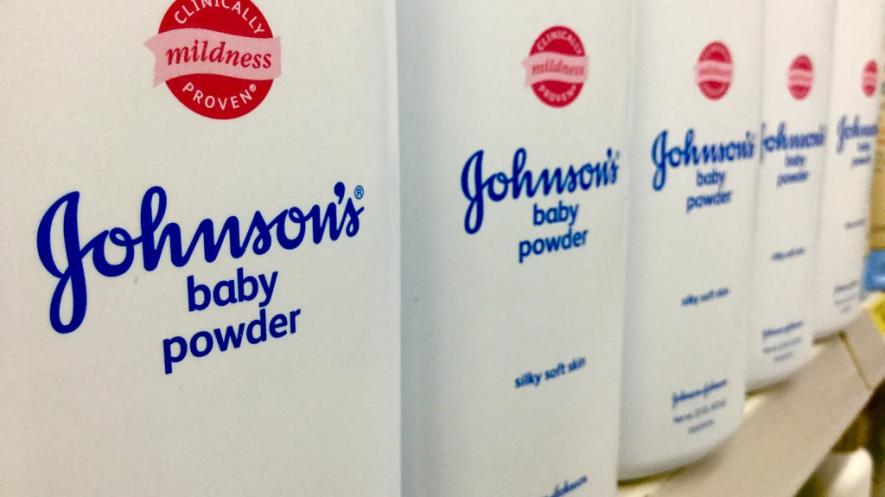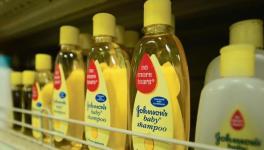Johnson and Johnson Aware of Presence of Cancer-causing Asbestos in its Baby Powder, Reuters Report

Image Courtesy: flickr
The medical giant Johnson & Johnson is currently facing legal trouble in India over its faulty hip implants. As the struggle for compensation for the faulty implants is gaining momentum, the global pharmaceutical giant has been hit by another case of medical negligence. A report released on Friday (December 14) by Reuters exposed that from at least 1971 to the early 2000s, the company’s raw talc and finished powders sometimes tested positive for small amounts of asbestos, and that the company executives, mine managers, scientists, doctors and lawyers fretted over the problem and how to address it, while failing to disclose it to regulators or the public.
The extensive investigation conducted by Reuters examined decades worth of internal company examination of documents, deposition and trial testimony, which directly implicates Johnson & Johnson for knowing for decades that its baby powder contained asbestos. The Reuters investigation comes in the backdrop of multiple lawsuits that the company is currently facing — where more than 9,000 plaintiffs have alleged that its baby talcum powder products contain asbestos and caused ovarian and other cancers.
Also Read: Johnson and Johnson Hip Implants: Compensation Only an Eyewash
The report focused on the account of Darlene Coker who, suffering from crippling pain because of cancer, set out on a mission to know how she had gotten the disease. Her case was in 1999, which was later dropped due to lack of evidence. Two decades later, the material that Coker and her lawyer had sought is emerging as a crucial factor and as a final nail in the coffin for J&J.
In recent years, J&J has faced mounting legal pressure. In 2017, a Californian woman was awarded $417 million from J&J after she had filed a lawsuit claiming that the company’s famous baby powder gave her ovarian cancer. Additionally, this July, a jury in St. Louis awarded nearly $4.7 billion to 22 women who sued the company, claiming that asbestos in the company’s talcum powder had contributed to their ovarian cancer. Reportedly, the company has been sued by more than 9,000 women who claimed that the company’s talcum powder was linked to their cancer, although the company has denied these claims terming them a “Conspiracy”.
Speaking with NewsClick, Malini Aisola of AIDAN (All India Drug Action Network) said, “With J&J, it has been a company policy to deny all claims against them instead of owning up to their mistakes. In India too, they have been facing flak from multiple quarters over its faulty hip implant. They have been criticised over the pinnacle implants as well. The company has lost trust globally, in this light, the role of the regulator assumes greater importance. However, the Indian government has done all it can to brush the issues aside which have benefited the firm. There has been no charge-sheet by the central government.”
Also Read: Johnson & Johnson To Face Heat Over Faulty Hip Implants
J&J Influenced Regulators
The documents accessed by Reuters also depicted successful efforts by the pharma giant to influence US regulators’ plans to limit asbestos in cosmetic talc products and scientific research on the health effects of talc. In 1973, after the FDA (Food and Drug Administration) indicated that they might be considering proposing a rule that required all cosmetics to contain no more than .01 per cent asbestos, a scientist wrote in an internal note, “we may have problems,” the report alleged. The proposed ruling never came to be and although the FDA did eventually set asbestos limits on talc used in drugs, it never issued a similar ruling for cosmetic talc, according to Reuters.
The U.S. FDA had also considered putting limits on asbestos in cosmetic talc products. According to the publication, J&J assured them and went ahead to claim that no asbestos had been “detected in any” samples.
The Reuters report pointed out that, in an internal memo from 1976, one of the company’s talc overseers also wrote that if stricter methods for testing talc became mandatory, the company would be “hard pressed in supporting purity claims.”
Ahead of the legal pressure mounting against the giant in India, the findings of the investigation are only set to worsen the case for J&J, with many demanding a ban on the product. Following the global outrage over the investigation, the company’s shares have tumbled 12 per cent on Friday.
Get the latest reports & analysis with people's perspective on Protests, movements & deep analytical videos, discussions of the current affairs in your Telegram app. Subscribe to NewsClick's Telegram channel & get Real-Time updates on stories, as they get published on our website.

















